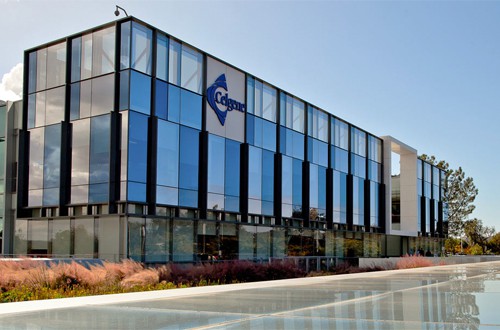
Celgene could be just six months away from getting its first approval for enasidenib, a first-in-class drug for acute myeloid leukaemia (AML) licensed from Agios.
The small-molecule drug is an inhibitor of isocitrate dehydrogenase 2 (IDH2), an enzyme found in the mitochondria of cells involved in metabolism.
Mutations in the gene coding for IDH2 are linked to various cancers, including AML, and it is thought these play a role in driving the growth of malignant cells. IDH2 mutations occur in around 8-19% of AML patients, according to Celgene.
Celgene filed for approval of enasidenib as a treatment for relapsed, refractory IDH2-positive AML patients in the US in December, and says it has just been awarded a priority review for the drug with a regulatory verdict due by 30 August. It has also filed for approval of a companion IDH2 diagnostic.
Celgene‘s head of haematology and oncology Michael Pehl said: “We accelerated this application – submitting [it] just three years after the first patient was treated in the enasidenib pivotal investigational trial – because we believe that there is a significant unmet need for people with relapsed or refractory AML.”
The filing is based on data from a single-arm phase I/II study of enasidenib in patients with advanced haematologic malignancies with an IDH2 mutation, which found that more than half the patients on the drug responded to treatment. The data were presented at the American Society of Haematology (ASH) meeting last December.
For Celgene, enasidenib will slot into its haematological malignancy portfolio alongside Vidaza (azacitidine), a drug used first-line to treat AML patients who cannot receive a stem cell transplant and which made $608m in sales last year. Analysts at Credit Suisse have predicted sales of around $230m for the drug in 2020.
Agios has an IDH1 targeting drug called ivosidenib (AG-120) in clinical development and hopes to be able to file that in the US for relapsed, refractory AML later this year. This submission will be based on data from an ongoing phase I clinical trial.
At one point Celgene had rights to AG-120 under its long-standing collaboration with Agios – which dates back to 2010 – but returned them when the two companies announced an expanded immuno-oncology alliance last year.
A phase III trial of ivosidenib in combination with Vidaza is due to start in newly-diagnosed IDH1-positive AML patients in the first half of 2017, according to Agios.




